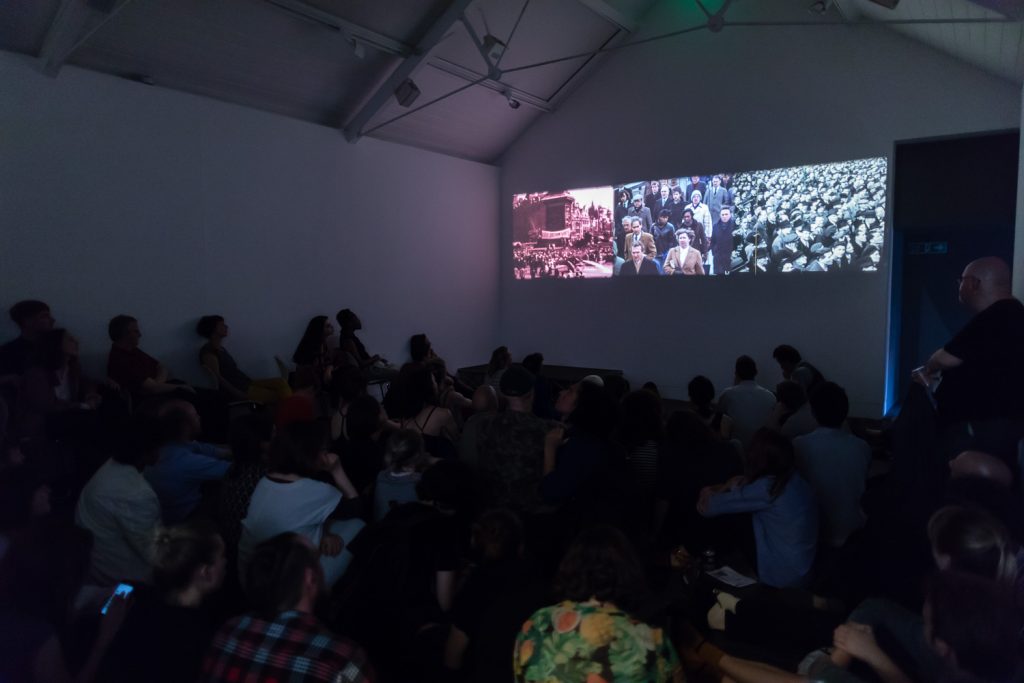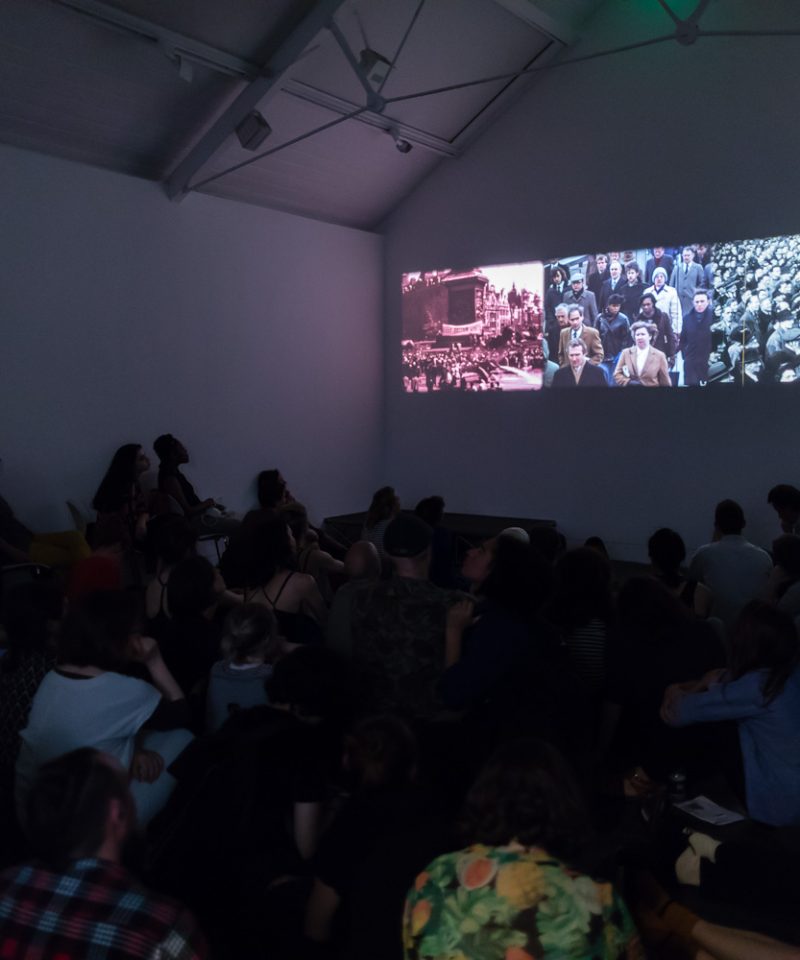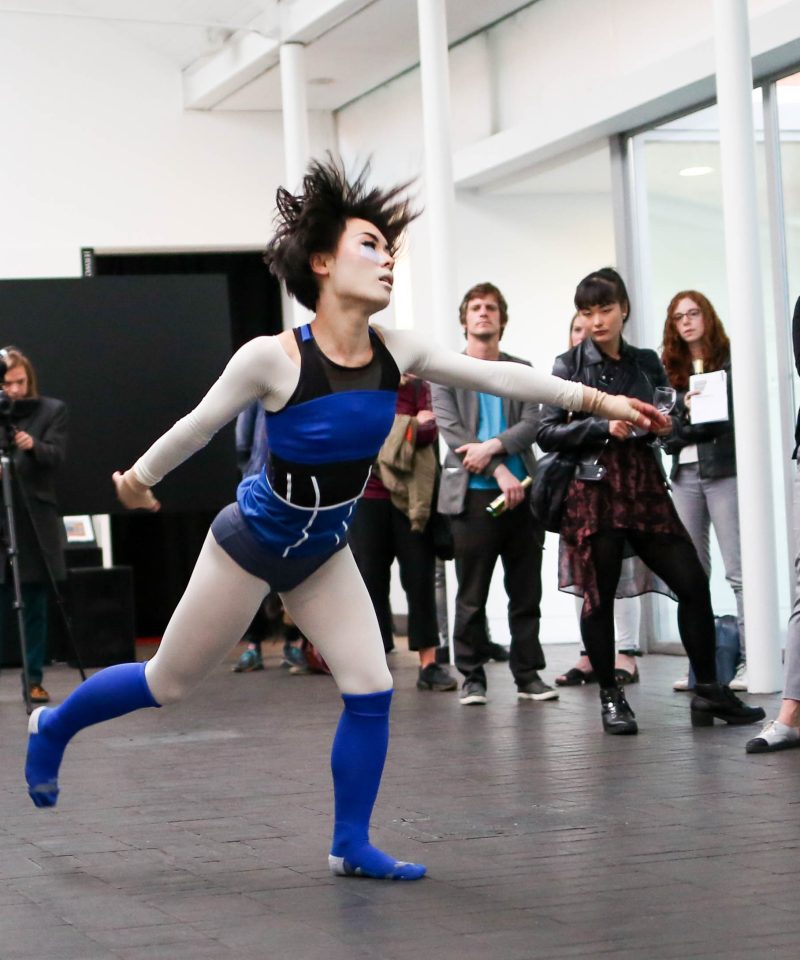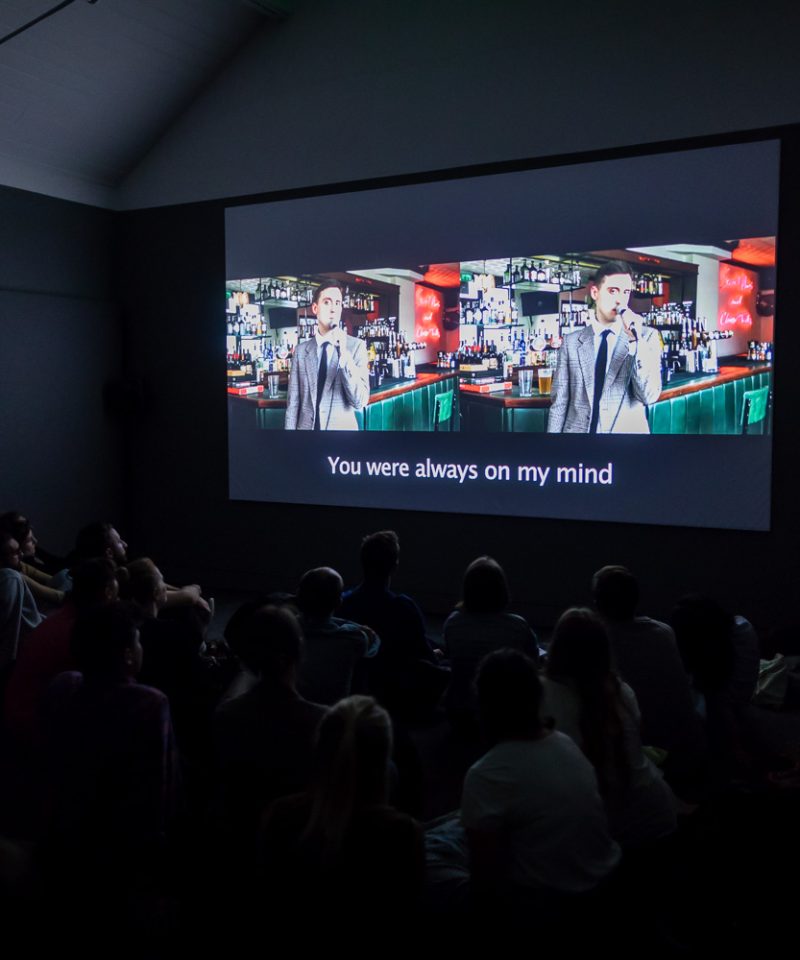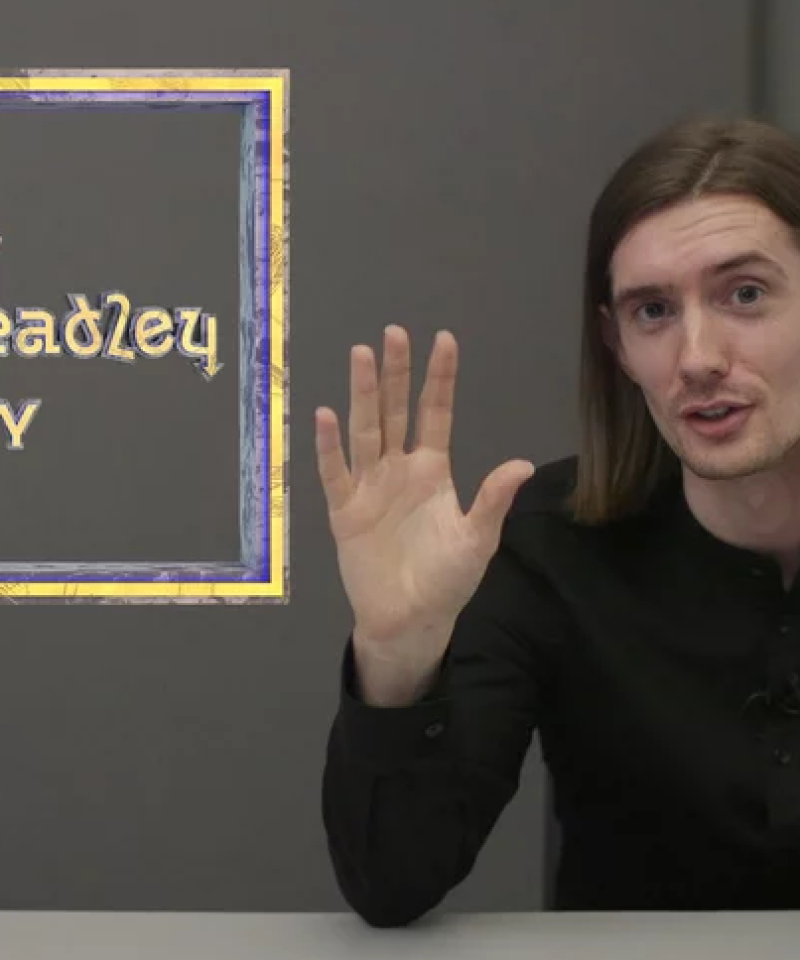The world descends. Contracts. It struggles under our weight — to breathe. Relax. It’s shit and it’s getting shitter, and the bastards know it. They know what they’re doing, and they want to know what you will do about it.
Such is the message of Slant – for the Unsettling, an evening of films and performance at the Jerwood Space curated by Gareth Evans. The evening is hot; too hot. The first real night of summer, where the novel sweat makes people slightly delirious. These nights are unique in London, a city badly designed for any weather condition. You become dreadfully aware of the limits of your body. This is what it feels like to be truly alive, I think to myself as I walk to the venue. I hate it. Everyone on the street slows down. At the top of every flight of stairs, the unfit gasp.
In his selection of films and readings, Evans also makes it hard to breath. He’s taken as his departure point the reclusive Thomas Pynchon, the US novelist whose birthday this event celebrates. From there he launches us into a night where visions of a future that somehow falls out of the hands of human agency (into technology, environmental depredation, etc.) are balanced with a past where people fought and themselves found air.
Mall Walking, directed by Rob Crosse, quietly depicts the morning exercises of a group elderly residents of Omaha, USA. They’re known as mall walkers, and they attempt to keep trim by strolling around the corridors of a suburban shopping centre. Some walk alone, others chatting in groups; but they’re not consuming. Instead, they take advantage of this air-conditioned faux-public space. The contemporary mall is, of course, the liminal non-space of choice for the dystopian-butch writer of late capitalism. It has it all; the uncanny simulacra of the public, complete with market squares and fountains; the smoothing over of conflict and difficulty, from soothing piped music to privatised security apparatus; and the relentless invocation to consume, and, in doing so, to identify with consuming. The elderly mall walkers offer a disconcerting challenge to this. Within their non-commercial use of the space, they carve out a quiet moment for themselves, or for socialising, and for something human. The film is weighed down with a sense of the desperate — not least with the looming spectre of the US healthcare system and end of life care — but for desperation to exist, there has to be some hope, at least. It can’t all be resignation to the world provided. Within the worn tracks of the walkers is something very human, sat amongst the inhuman mall.
A future-present also plays out in D. ^^.$.®, an extract from a larger film by Samuel Fouracre, where a seamless rendering of an imaginable dystopian city hosts similarly seamless characters in a series of luxurious and obscene mise en scène. The film focuses on the human within the digital; the touching moments of affect and intimacy, sure, but also the desperate and aspirational. From a poolside a well-spoken American bourgeoise intimates the perverse Ayn Randian fantasies of her slightly pathetic lover in a Woody Allen patois; the audience struggles against the compelling horror of the prospect of future digital subjects.
Throughout the screening, we’re offered examples of films that allow us a break from the anxiety of what is to come. In Chontaduro Honey, for example, Laura Alhach allows us to experience her own relationship with memory, producing a reflection on the city of Cali in Colombia through an exploration of archive photos. The delicacy of those reflections smooths over the aggression of some of the evening. It’s cooling, sitting in the sepia light as salsa music plays; it’s just as hard to imagine that world as a future world, with the relationships now passed on, having changed.
Evans’ choice of films asks us to think about science fiction, about dystopias. The relationship between the representations of the past — as something knowable, and as a place of contestation — and the future — as something almost inevitable, where orthodoxy is unchallenged — asks us to reflect on the anxious present, like all good science fiction does. Our respite from the horror of a future we can’t know as anything more than the sum of our fears was the spectre of class war. 14 minutes and 3 screens of 16mm class war, to be exact, as footage of 50 years of no-shame, all-glory heroines and heroes of the working class gave full battle with the disembodied voices of Thatcher, Major, and Blair playing out over the film’s soundtrack. Louis Benassi’s Street Hassle approached a moment of sublimity as the light beams fogged with the sweat of the audience. Scenes from the women of Grunswick, from 1000s of miners, from pitch battle of worker vs filth were the living, breathing body of the work; the huffing, rattling projectors behind us could almost be their breaths as the lines of coppers force back the pickets. An entire history of conflict in the UK played out, overlaid with the sounds of our masters and leaders. Wilson, Blair, Thatcher and Heath filled one screen as the working-class broke into insurrection on another. In context, the film revived agency, removing the heat-induced torpor and positing the question of action, of decision-making, of taking control of the future. Evan’s selection reminded us, above all, of the words of Jimmy Reid, who made his cameo in Benassi’s triple-screener: “The rat race is for rats. We’re human beings”. The film ended with a dedication – “for camaraderie”. We’re going to need it.
